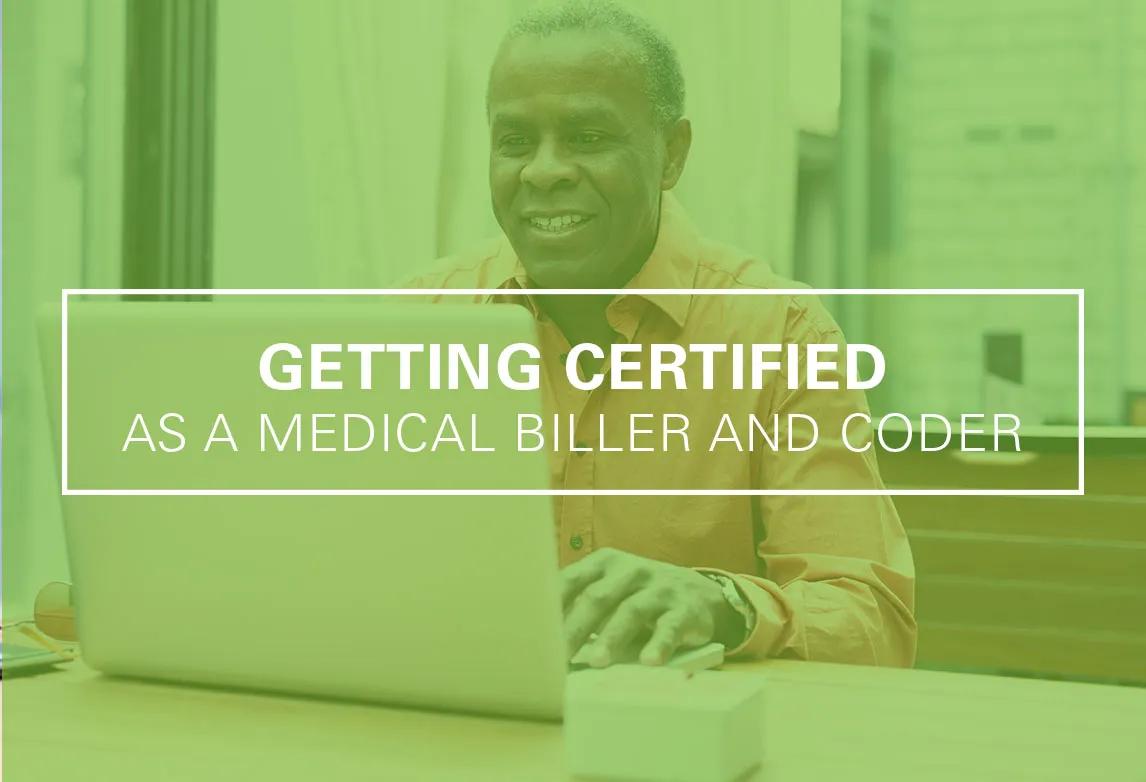Guide to Health Information Management: Duties, Salary, Career Options, and More

Jobs in healthcare are projected to grow much faster than average, resulting in a projected 1.9 million openings per year, on average, from 2023 to 2033.1 If this field is of interest to you, one option to consider is a career in health information management (HIM).
What Is Health Information Management?
Health information management refers to collecting, organizing, storing, tracking, and protecting patient data. This is sometimes called health information technology or HIT because it can involve working with digital healthcare recordkeeping systems and software, such as electronic health records (EHRs).
The American Health Information Management Association (AHIMA) states that these roles are important because they help healthcare professionals better understand whether a patient’s health is changing.2 This same data can also be used to identify public health trends or to learn if certain treatment methods are effective for specific populations.
Health information management is different from many other healthcare careers in that it does not involve hands-on patient care. Instead, HIM professionals work more behind the scenes. It’s a technology role within the healthcare space.
What a Health Information Management Technician Does
Health information technicians are responsible for keeping patient records updated and complete. They might also verify record accuracy while organizing the information, so it is accessible to the patient’s healthcare team.
Health information techs can provide these types of services in hospitals, physicians’ offices, and health technology companies, just to name a few.
Health Information Management Roles and Responsiblities
The specific job duties assigned to a health information management specialist can vary from one employer to the next. Potential HIM job duties might include:
- Reviewing a patient’s record for accuracy and completeness
- Inputting classification codes based on a patient’s specific diagnoses, medical tests conducted, and treatment protocols
- Ensuring that patient records are secure, and their private information is protected
- Compiling healthcare reports
When applying for a health information management position, carefully reading the job description can help you better understand what your duties would be in that role when working for that employer.
Health Information Tech vs Medical Records Technician: What’s the Difference?
If you’re interested in working in HIM, you may notice a variety of job titles. Health information technician is one. Medical records technician is another. What is the difference between the two?
Medical records technician is another name for health information technician. Both help healthcare agencies with the management and upkeep of patient records. You can also sometimes find these roles listed under other titles, some of which include health information management technician, health information specialist, and medical records specialist.
Health Information Management Wage Information
As of May 2023, the median pay for health information management roles — which the Bureau of Labor Statistics (BLS) classifies as medical records specialists — was $44,780 per year.3 This equates to roughly $23.45 per hour.
Health information management wages can vary based on a variety of factors. Among them are where you work geographically, your level of education and experience, whether you hold any certifications related to HIM, and the industry in which you work.
The BLS indicates that health information roles are expected to increase 9% between 2023 and 2033.4 This level of growth is attributed, in part, to an aging population, and a widespread usage of EHRs.
What Can You Do with a Health Information Management Degree?
Earning your health information management degree helps prepare you to fulfill entry-level HIM functions. Entry-level HIM roles include:
- Health information technician
- Medical records technician
- Medical records analyst
- Medical billing specialist
- Medical code
Each of these professionals can perform tasks related to patient information collection, management, and security. That is why Ultimate Medical Academy’s online Health Information Management associate degree program includes courses such as Introduction to Computer Office Productivity Applications and Healthcare Reimbursement & the Revenue Cycle. UMA students also learn about various medical coding systems, which include the International Classification of Diseases (ICD) and Current Procedural Terminology (CPT).
Health Information Management Career Options
Earning your health information management degree can help prepare you for entry-level HIM positions. However, your career doesn’t have to stop there.
There are a variety of career options you can pursue in the health information management field. AHIMA shares that these careers can follow six basic paths: revenue cycle management, informatics, data analytics, data quality, consumer health information, and privacy, risk and compliance.5 Some positions within these paths are considered entry-level whereas others are middle-level, advanced, or master-level roles.
For example, medical biller is an entry-level HIM position that can help prepare you for a middle-level position such as chargemaster analyst. This role can help prepare you for an advanced position of revenue integrity specialist, which can help prepare you for a director of revenue cycle management role.
How to Become a Health Information Management Specialist
While some employers may only require a high school diploma to work as a health information specialist, the BLS indicates that a postsecondary certificate is generally required.6 Some healthcare facilities may even request that applicants have an associate degree or higher.
The BLS adds that certification is also preferred. For instance, you earn your certification as a registered health information technician (RHIT). Other certification options include:
- Registered health information administrator (RHIA)
- Certified health data analyst (CHDA)
- Certified documentation improvement practitioner (CDIP)
- Certified in healthcare privacy and security (CHPS)
You must meet the certifying agency’s minimum requirements to sit for your desired certification exam.
In addition to education and certification, there are certain “soft skills” that are helpful when working in HIM roles. They are being analytical, having good attention to detail, acting with integrity, and having an ability to work well with others in the healthcare field.6
Ready to Pursue Your HIM Degree?
If you think that a health information management career may be right for you, Ultimate Medical Academy offers a Health Information Management associate degree program. This is an 18-month mostly online program7 that provides instruction in areas such as healthcare policies, coding, and reimbursement. It also provides the opportunity to gain 90 hours of workplace experience, which can make a great addition to your resume.
Contact UMA today to learn more about this program or for help deciding if it is the right program for you. Our professional, caring, and compassionate staff are here to answer your questions so you can make the best decision based on your situation, needs, and career goals.
FAQs About Health Information Management Roles:
- Why choose a health information management career? If you are interested in both healthcare and technology, health information is a combination of both. Working in this type of role can be satisfying because it helps ensure patient record accuracy for diagnosing and treatment. This data can also be used to identify healthcare trends and treatment effectiveness.
- What does a HIM specialist do? A HIM specialist helps collect, organize, store, and track patient information within a healthcare setting. People in this role are also tasked with ensuring that the information is correct while protecting patient privacy.
- Do you need a degree to be a health information technician? Whether you need a degree is up to the individual employer. Some only require a high school diploma while others may require an associate degree or higher; though, many require certification.
- What is a health information management degree? A health information management degree indicates that you have completed a HIM program. It tells potential employers that you have obtained a certain level of education in health information management.
- What kind of jobs can you get with health information management? Entry-level titles in health information management include Health Information Technician, Medical Records Analyst, and Medical Biller or Coder.
- How much money does a health information management specialist make? The median annual wage for health information specialists as of May 2023 was $48,780 per year.3 Though, actual pay can vary based on a number of variables.
- What skills do you need for a HIM career? While it’s helpful to have computer and coding skills, certain soft skills are also beneficial when working in health information management roles. These include attention to detail, analytical thinking, and the ability to work well with other healthcare professionals.
- What can you do with a health information management degree? Great question! And It's one we get often, which is why we created a video explaining the health information management role. We hope it helps!
1 U.S. Bureau of Labor Statistics. Occupational Outlook Handbook. Healthcare Occupations.https://www.bls.gov/ooh/healthcare/home.htm
2 AHIMA. What is Health Information? https://www.ahima.org/certification-careers/certifications-overview/career-tools/career-pages/health-information-101/
3 U.S. Bureau of Labor Statistics. Occupational Outlook Handbook. Medical Records Specialists. https://www.bls.gov/ooh/healthcare/medical-records-and-health-information-technicians.htm
4 U.S. Bureau of Labor Statistics. Occupational Outlook Handbook. Medical Records and Health Information Specialists. Job Outlook. https://www.bls.gov/ooh/healthcare/medical-records-and-health-information-technicians.htm#tab-6
5 AHIMA. Career Map. https://www.ahima.org/career-mapping/career-map/
6 U.S. Bureau of Labor Statistics. Occupational Outlook Handbook. Medical Records and Health Information Specialists. How to Become a Medical Records or Health Information Specialist. https://www.bls.gov/ooh/healthcare/medical-records-and-health-information-technicians.htm#tab-4
7 Completion times vary according to the individual student. Set schedules required for on-site externship/practicum courses in select programs and in all programs, coursework deadlines are set by instructors.
Request Information
Talk with us. Start your journey.
Complete this form and we'll call you to explore options at UMA and answer your questions. We'll also email you info on how to get started. We're with you at every step!
Request Information
Talk with us. Start your journey.
Complete this form and we'll call you to explore options at UMA and answer your questions. We'll also email you info on how to get started. We're with you at every step!
About the Author
 Adam Fenster
Adam FensterAdam Fenster is a senior copywriter at Ultimate Medical Academy, with journalism experience from his time as a reporter and editor for multiple online and print publications. Adam has been covering healthcare education since 2019, with an emphasis on topics such as wellness, healthcare employment, and job preparedness. He received his BA in journalism from the University of South Florida.
Related Content


